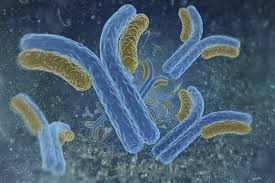Antibodies are blood protein produced in response to and counteracting a specific antigen. Antibodies combine chemically with substances which the body recognizes as alien, such as bacteria, viruses, and foreign substances in the blood.
They are produced by the body’s B cells to fight infections like bacteria, viruses, and other invasive pathogens. When B cell recognizes a specific pathogen-derived “antigen” molecule, it can proliferate and develop into plasma cells that secrete large amounts of antibody capable of binding to the antigen and fending off the infection.
B cells need a second signal to start proliferating and developing into plasma cells. This second signal can be provided by short DNA fragments called CpG oligonucleotides, which activate a protein inside B cells called TLR9.
But treating patient-derived B cells with CpG oligonucleotides stimulates every B cell in the sample, not just the tiny fraction capable of producing a particular antibody.
Treating patient-derived B cells with tiny nanoparticles coated with both CpG oligonucleotides and the appropriate antigen. using this method, CpG oligonucleotides are only internalized into B cells that recognize the specific antigen, and these cells are therefore the only ones in which TLR9 is activated to induce their proliferation and development into antibody-secreting plasma cells.
Some of the anti-influenza antibodies produced by the method recognized multiple strains of the virus and were able to neutralize its ability to infect cells.
The method does not depend on the donors having been previously exposed to any of these antigens through vaccination or infection; the researchers were able to generate anti-HIV antibodies from B cells isolated from HIV-positive patients.
Researchers generate therapeutic antibodies for the treatment of infectious diseases and cancer.
haleplushearty.blogspot.com



